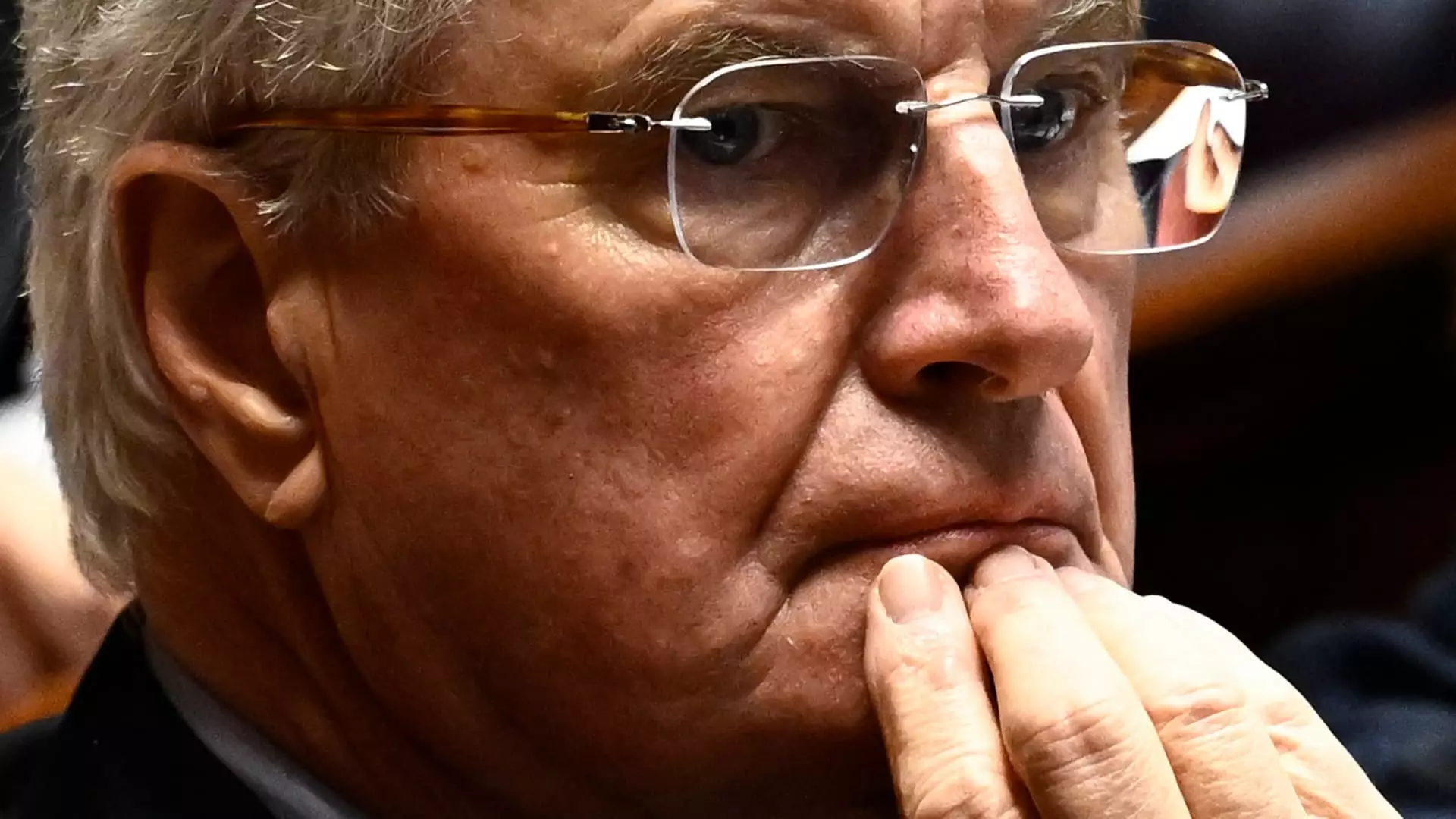The political landscape in Europe is beginning to resemble a house of cards, teetering perilously as numerous governments grapple with severe budgetary crises. Recently, French Prime Minister Michel Barnier’s rigid stance against concessions has propelled his administration toward a certain downfall, as he braces for a no-confidence vote scheduled for Wednesday afternoon. This crisis is twisting the arms of parliamentary democracy, with the looming threat of Barnier being ousted as his fiscal propositions clash with the demands of both left and right factions within his government. The stakes could not be higher; the specter of instability looms as France seemingly prepares to write another chapter in its tumultuous political saga.
In parallel, the German leadership isn’t faring much better, facing the precipice of a snap election early next year. With a no-confidence vote on the horizon, Chancellor Olaf Scholz is anxiously monitoring developments that could unravel his coalition and bring about a sharp pivot in governance. Across the English Channel, U.K. Prime Minister Keir Starmer and Finance Minister Rachel Reeves are feeling the pressure just five months into their tenure, with budget disputes igniting friction among political factions. This risky atmosphere of governance raises an essential question: why has the issue of national budgets erupted into such a contentious battleground across Europe?
The emergence of strict fiscal imperatives across Europe is forcing even the most steadfast budgeters, such as Germany and Austria, to confront demands that challenge their long-held economic philosophies. The eurozone’s post-pandemic fiscal rules stipulate that member states maintain a deficit of no more than 3% and a debt-to-GDP ratio of 60%, yet many nations, including traditionally more frugal Germany and the fiscally relaxed Southern European states such as France and Italy, find themselves struggling to comply. Suddenly, the globally recognized principles of macroeconomic management are colliding with political realities, proving detrimental for both economic stability and governmental longevity.
The European Commission has shifted its evaluative parameters; no longer are budgets merely appraised based on year-end figures or immediate impacts. Instead, long-term effects are now given weight, intensifying scrutiny on how each country’s fiscal maneuvering could tilt its overall economic trajectory. Barnier’s attempts to push through a substantial economic overhaul, which includes a staggering 60 billion euros in tax hikes and spending cuts, further stokes the fires of dissent. By invoking Article 49.3 of the French Constitution, Barnier risks becoming the shortest-serving Prime Minister since 1958—a bold but perilous decision that may bear immediate repercussions.
The political showdowns in France and Germany are not isolated phenomena but rather part of a larger, interwoven fabric of European governance undergoing intense scrutiny and stress. The uncertainty reverberates across financial markets—French stocks have fallen sharply, alongside soaring borrowing costs reminiscent of the eurozone debt crisis a decade ago. Meanwhile, Berlin is still reeling from Scholz’s controversial arms deal with Ukraine, which has kindled discontent within his governing coalition due to the significant financial implications and the competing interests among governmental factions.
As business confidence in the United Kingdom declines to its lowest level since the onset of the COVID-19 pandemic, the ramifications of these budget disputes are manifesting far and wide, instilling an atmosphere of discontent and advancement paralysis across industries. The economic stakes are dire, with serious consequences for future investment prospects, particularly as Reeves’ tax-raising initiatives trigger a slowdown in manufacturing.
Economists and analysts, such as Edmund Shing from BNP Paribas Wealth Management, have warned that stagnation and instability could become the prevailing narrative for Europe, just as the United States appears to gain clarity in its political framework with the anticipated return of President-elect Donald Trump. This dangerous juxtaposition of political uncertainty within Europe poses a considerable threat to not only national economies but also the very ethos of European integration and cooperation.
As European leaders desperately seek solutions to navigate this turmoil, it becomes increasingly obvious that cohesive fiscal strategies and aggressive policy reform are necessary—without them, the specter of weakened governments, economic downturns, and political upheaval will continue to dim the European horizon. The stakes have never been higher, and the call for a profound reevaluation of budgetary frameworks echoes louder than ever.


Leave a Reply